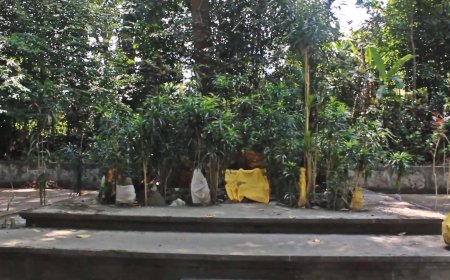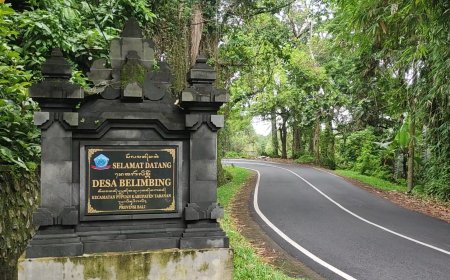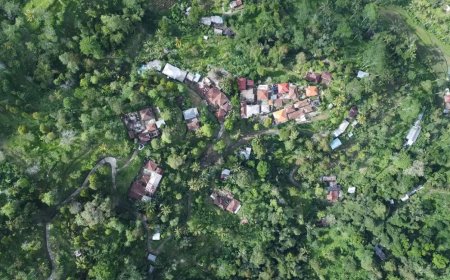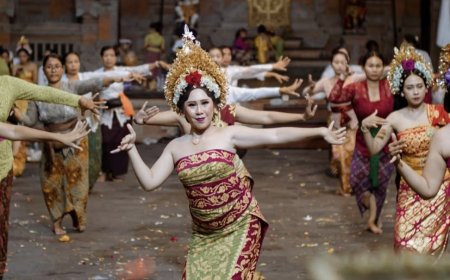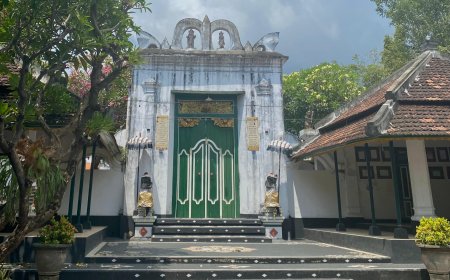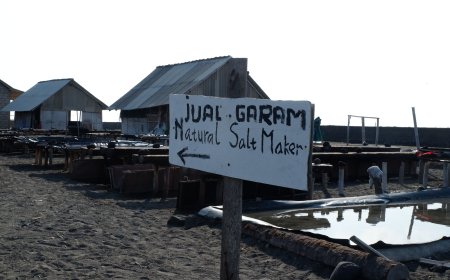The Charm of the Agung Peninjoan Market: Delving into the Uniqueness of a Traditional Shopping Center in Peguyangan.
Agung Peninjoan Market in Peguyangan, established since 1997, is a lively traditional shopping center rich in Balinese culture. This market provides a variety of daily necessities for local people, from fresh produce to spices. In addition, visitors can find traditional Balinese handicrafts and clothing that attract tourists. This market is also a center for social activities that strengthen relationships between residents. The existence of this market also maintains the traditions and richness of Balinese culture.
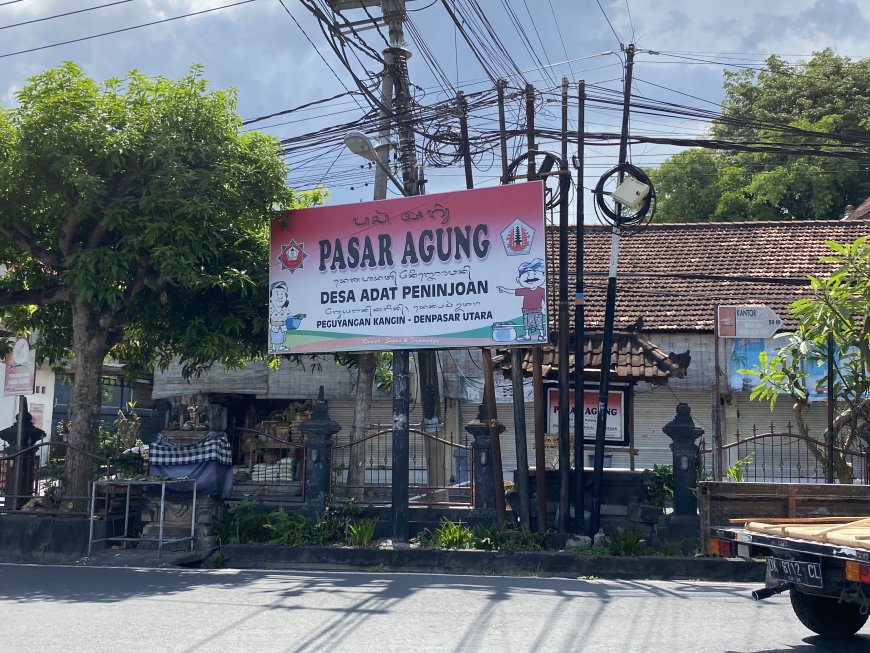
Agung Peninjoan Market, which was established in 1997 in the Peguyangan area, Bali, is a traditional shopping center that has historical and cultural value for the local community. Since its inception, this market has served as a center for economic and social activities for the residents of Peguyangan and its surroundings. This market reflects the spirit of mutual cooperation of the Balinese people, where traders from various backgrounds gather to offer a variety of basic necessities, from fresh food ingredients to traditional handicrafts.
At Agung Peninjoan Market, visitors can find a variety of products that reflect local wisdom, such as fruits, vegetables, traditional spices, and Balinese clothing. In addition to being a place to shop, this market also offers a unique cultural experience with a bustling, colorful atmosphere and rich in social interaction. Every corner of this market presents the friendliness of traders who are always ready to greet buyers with smiles and friendliness, creating a warm and intimate atmosphere.
For tourists, Agung Peninjoan Market offers more than just a place to buy souvenirs. This market provides an opportunity to experience the simple and authentic life of the Balinese people. Visitors can witness firsthand interactions between local residents, learn about traditional shopping habits, and discover unique products that are not easily found elsewhere.
Local UMKM at Agung Market (Photo Source: Personal Collection)
In the picture, a trader is seen serving a buyer who is choosing goods at his stall. A friendly atmosphere is evident from this interaction, where visitors and sellers communicate with each other casually. The narrow and crowded corridor shows the character of a busy traditional market, with various types of goods neatly arranged in baskets and piles. This atmosphere reflects how traditional markets become social spaces for local people, where they not only shop, but also interact and strengthen social relationships.
This picture depicts one side of Balinese life that still holds fast to their traditions and culture, even amidst the hustle and bustle of modern developments. Agung Peninjoan Market is a place where visitors can directly experience the authentic atmosphere of Balinese daily life. Visitors can see, feel, and even be involved in shopping activities that are not only about transactions, but also a rich cultural experience.
Rows of UMKM Places at Agung Market (Photo Source: Personal Collection)
This image shows rows of stalls at Agung Peninjoan Market with some stalls already closed, while others are still open and serving customers. Each stall provides a variety of basic necessities, from basic necessities to local snacks, neatly arranged in front of or around their stalls. Rolled bamboo curtains cover most of the closed stalls, reflecting the traditional style of this market.
This market has a simple feel, typical of traditional Balinese markets, where merchandise is displayed in simple containers. Some stalls arrange their products directly in front of the shop, making them easily accessible and visible to visitors passing by. The stalls are side by side in long rows, giving the impression of a dense and bustling market with a choice of daily necessities.
One of the Alleys in Agung Market (Photo Source: Personal Collection)
The wet alley in Agung Peninjoan Market is an area dedicated to the sale of fresh meat and vegetables. Along this alley, there are stalls filled with fresh products that are usually sold by local traders.
This market is designed to facilitate buyer access, with a clean and tidy structure, creating a comfortable environment for shopping. The stalls in this alley provide a variety of meat and vegetable choices that can meet the needs of the local community, making the wet alley one of the important centers for fresh food trading activities in the market. In addition, there are also many types of alleys with different names and make this place organized because each section is made like an alley containing various types of goods in it.
Melanting Temple Located in the Middle of Agung Market (Photo Source: Personal Collection)
Melanting Temple is one of the temples located in the middle of Agung Peninjoan Market, becoming an important spiritual center for the local community. This temple is usually used by traders and market visitors to perform rituals and prayers before starting their buying and selling activities. The architecture of Melanting Temple reflects the traditional Balinese style, with distinctive ornaments and carvings. There are several small buildings inside the temple complex filled with statues and offerings, depicting the harmony between daily life and the spiritual beliefs of the Balinese people. The existence of Melanting Temple in the middle of the market creates a unique atmosphere, where commercial and spiritual activities interact with each other. Market visitors can feel the peace and blessings presented by this temple.
Pasar Agung Peninjoan is not only a traditional shopping center offering a variety of daily necessities, but also a reflection of Balinese culture and life. In its bustling alleys, stalls sell a variety of goods, while the presence of Melanting Temple adds a spiritual dimension, creating a rich experience for every visitor. The diversity of products and the warm interaction between traders and buyers create a friendly atmosphere, making this market a place to shop while socializing and celebrating traditions. More than just a place for commercial transactions, this market is the heart of social and cultural life, connecting people with their traditional roots. With a blend of culture, economy, and spirituality, Pasar Agung Peninjoan remains relevant and important to the lives of the Balinese people and is a must-visit destination for anyone who wants to experience the authenticity and richness of Balinese traditions.
